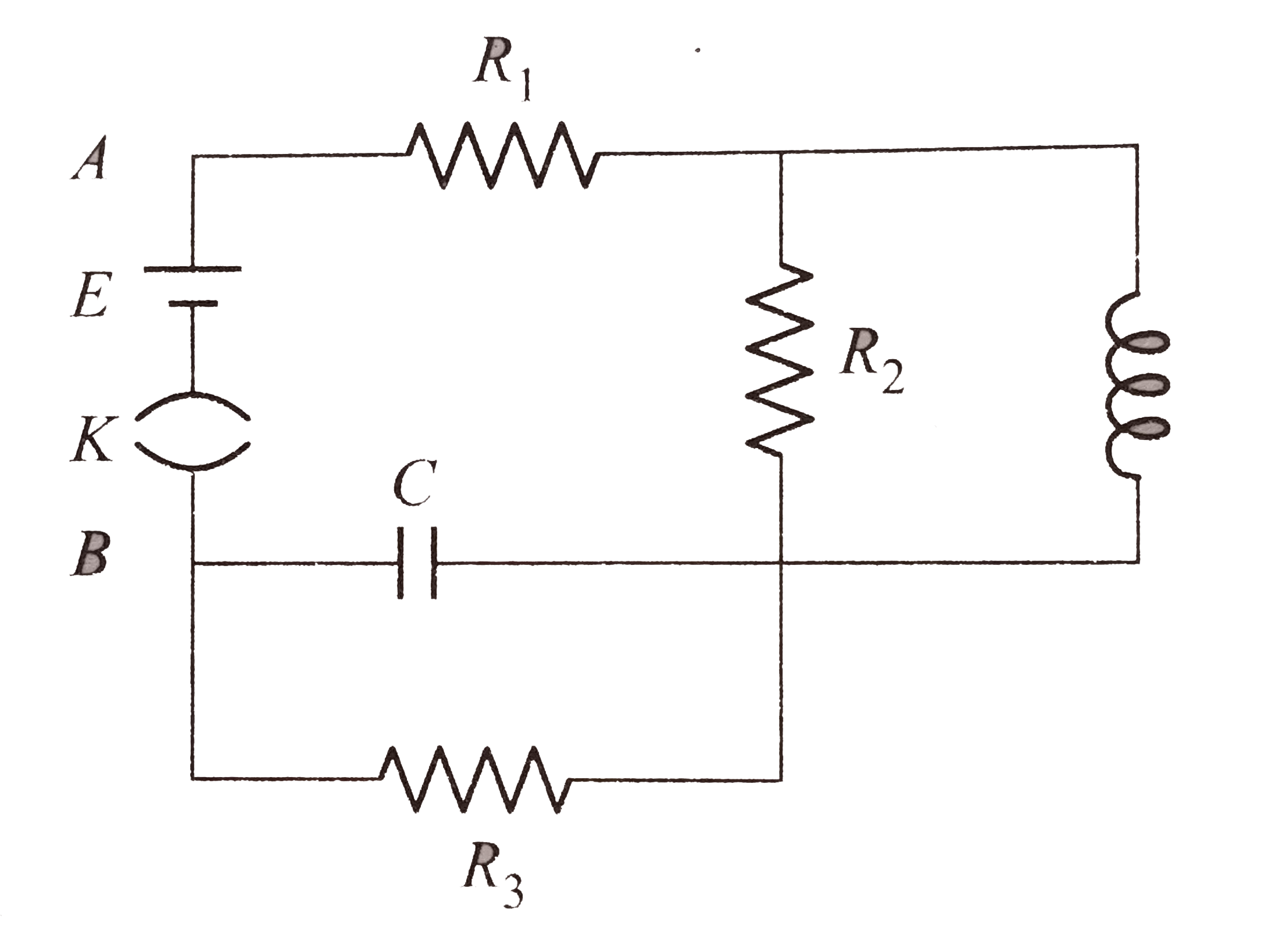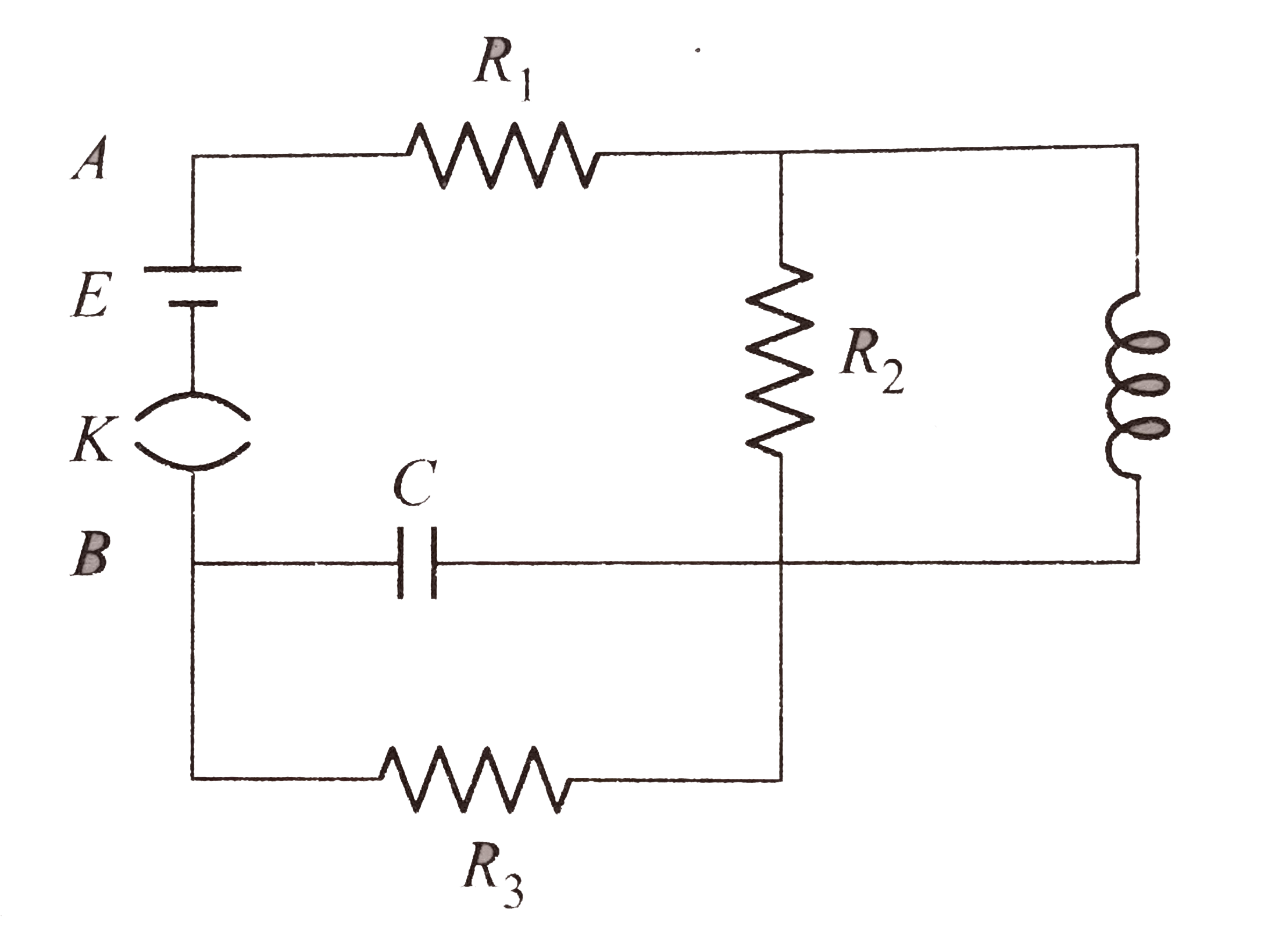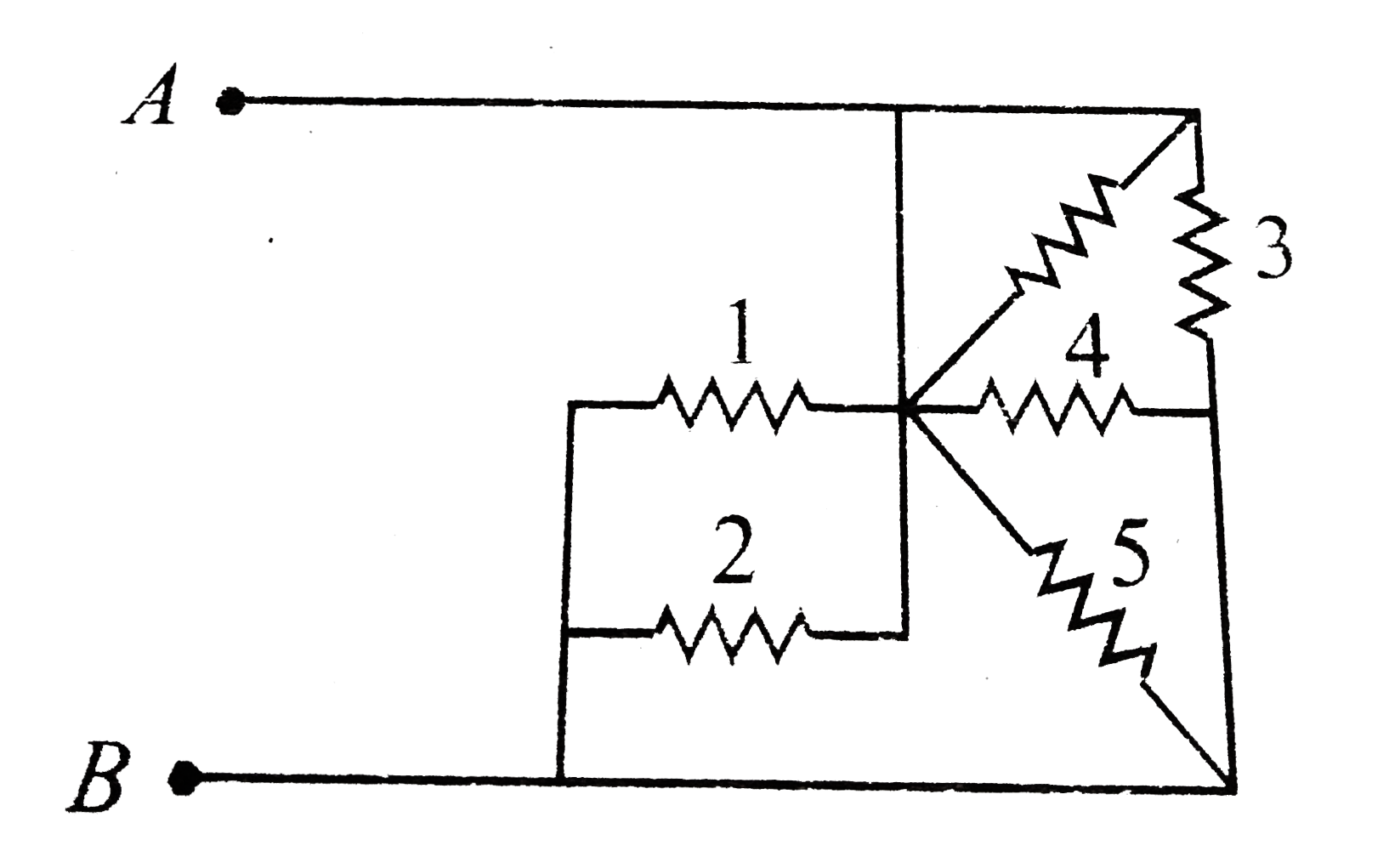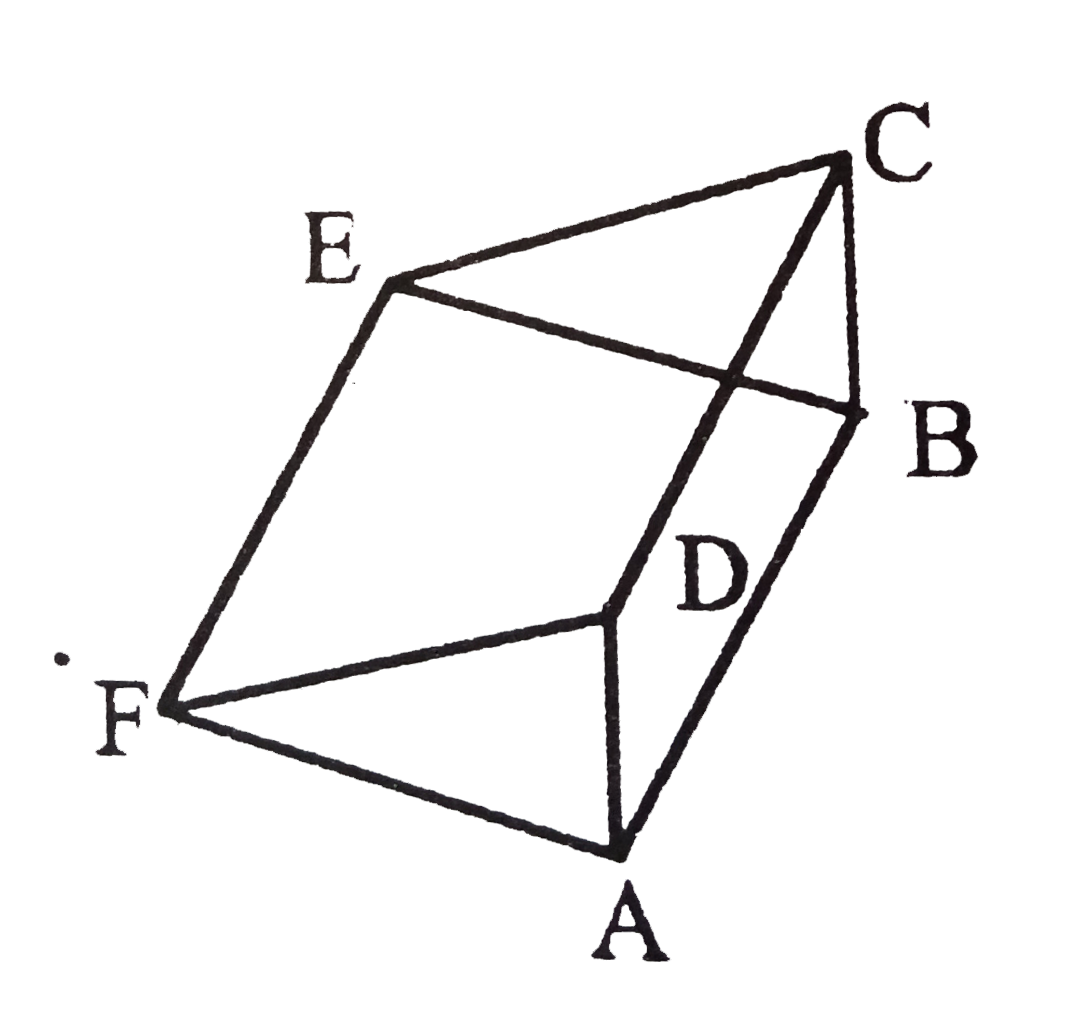In the given (Fig.) all the symbols have their usual meanings. At t=0, key K is closed. Now answer the following questions.

At t→∞, the equivalent resistance between A and B is
R1+R2+R3
R1+R2
R1+R3
none of these
At t=0, capacitor will behave like a short circuit and the inductor as open circuit but as t→∞, the nature is just opposite.
Topper's Solved these Questions
- GMP ASSESMENTBOOK - FIITJEECHAPTER - GMP ASSESMENTEXERCISE - Numerical Based
61 Videos
- GMP ASSESMENTBOOK - FIITJEECHAPTER - GMP ASSESMENTEXERCISE - Multiple Question
58 Videos
- GENERAL PHYSICSBOOK - FIITJEECHAPTER - GENERAL PHYSICSEXERCISE - MATRIX MATCH TYPE
3 Videos
- GRAVITATIONBOOK - FIITJEECHAPTER - GRAVITATIONEXERCISE - Numerical based Question
2 Videos
Similar Questions
Knowledge Check
In the given (Fig.) all the symbols have their usual meanings. At t=0, key K is closed. Now answer the following questions.

At t→∞, the euivalent resistance between A and B isAR1+R2+R3BR1+R2CR1+R3DNone of theseIn the given (Fig.) all the symbols have their usual meanings. At t=0, key K is closed. Now answer the following questions.

At t=0, the euivalent resistance between A and B isAR1+R2+R3BR1+R2CR1+R3DindeterminateThe circuit shown has resistor of equal resistance R. Find the equivalent resistance between A and B, when the key is closed.
 A11R12B13R12CR5D15R12
A11R12B13R12CR5D15R12
Show that for radioactive decay N(t) = NO e-λt , where symbols have their usual meaning.
View SolutionIn LR circuit, key (K) is closed at t=0. Which of the following quantities is not zero at time equal to time constant at circuit
_PHY_E06_142_Q01.png)
View SolutionIf all symbols have their usual meaning, then for a non-volatile non-electrolyte solute Ltm→0(ΔTfm) is equal to
View SolutionConsider a wave rpresented by y=acos2(ωt−kx) where symbols have their usual meanings. This wave has
View SolutionA string fixed at both the ends of length 2m. Vibrating in its 7th overtone. Equation of the standing wave is given by y=Asinkxcos(ωt+π3). All the symbols have their usual meaning. Mass per unit length of the string is 0.5gmcm. Given that A=1 cm and ω=100πradsec Answer the following 2 questions based on information given (use μ2=10)
Q. Starting from t=0, energy of vibration is completely kinetic at time tt, where t is:
View Solution

